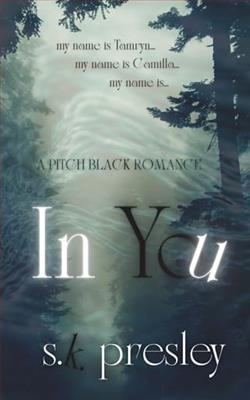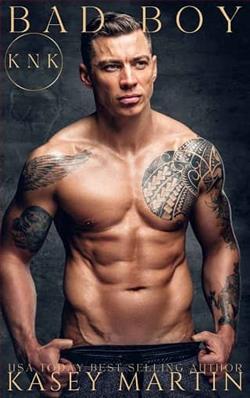Page 44 of Wild Daddy
"That's... good?"
"No." I stand up on shaky legs. "That's catastrophic."
"Why?"
“Because the thesis I plan to present takes every teaching method they ever used with me and uses it to light a fire. Because when they hear what I say they’re going toknowI’m not their little girl anymore. That I’ve chosen to walk a path of my own.”
He places his hands on my shoulders, centering me. Then he smiles. “Baby, sometimes you gotta burn things down for new things to grow. You’re just blazing your trail for new things and I’m going to standing there right beside you fanning the flames.”
Eleven
Marley
The conference room in the Academic Affairs building smells like coffee and fear. My fear, specifically.
I'm sitting at this mahogany table with my thesis bound in pristine white covers, forty-seven pages of academic rebellion that's either going to liberate me or destroy everything my parents have built their lives around. Maybe both. Probably both.
"Experiential Learning Through Authority-Based Educational Frameworks: A Phenomenological Study of Transformative Pedagogy in Non-Traditional Settings."
Even the title is a masterpiece of academic bullshit designed to hide what I really did.
Professor Harrison shuffles through his notes, clearly uncomfortable with whatever he read in my preliminary draft. Dr. Martinez from sociology looks intrigued. Dr. Chen from education wears her usual expression of scholarly skepticism. And Dr. Brooks, the external examiner from Northwestern'sjournalism program, sits with the focused attention of someone who recognizes truth when she hears it.
My parents sit in the gallery behind me, my mother's Hermès bag positioned like armor, my father's tenure-track posture radiating confidence in their intellectual investment. Nineteen years of careful cultivation about to be revealed as a beautiful disaster.
And in the very back row, taking up far too much space in the suit I never believed I'd see him wear, sits Cade. Our eyes meet for a moment, and his slight nod gives me all the permission I need.
Time to burn it all down.
"Ms. Voss," Harrison clears his throat, "please present your findings."
I stand, smooth my conservative blouse—the kind of academic uniform I've worn like armor my entire life—and begin the most honest presentation of my career.
"Traditional educational models assume learning occurs through information transfer within formal frameworks. My research challenges this through an intensive case study of alternative pedagogical approaches."
My mother nods approvingly. Maybe a little rebellion is allowed when it includes innovation?
"I embedded myself in a wilderness survival program led by a subject with extensive environmental education expertise. The methodology involved complete immersion in unfamiliar circumstances, requiring absolute trust in the instructor's authority."
Dr. Chen leans forward. "Okay, I'll bite. What methodology did you actually use here?"
Here we go.
"Participant observation. I documented my responses to teaching techniques, noting the correlation between instructorauthority and student transformation." I click to my first slide, my hands shaking slightly. "Initial resistance to non-traditional approaches decreased significantly when the instructor established clear behavioral expectations."
Dr. Martinez raises an eyebrow, looking amused. "Behavioral expectations? Sounds kinky."
Professor Harrison chokes on his coffee.
"Traditional classrooms allow students to make mistakes as part of learning. But in wilderness settings, incorrect behavior can lead to injury or death. The subject employed immediate correction techniques when I deviated from instructions."
My father makes approving notes. He's clearly loving this authority-based framework.
Dr. Brooks clears her throat. "Give me an example. What did these 'correction techniques' look like?"
"Physical restraint," I tell her, watching her eyes widen. "To ensure I was unable to come to harm."
My mother is still nodding. My father is taking notes on what he clearly believes is innovative pedagogical research.















